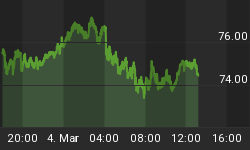FCNBC is reporting Fed May Ease Rules on Private Equity Bank Stakes.
The U.S. Federal Reserve is considering steps to make it easier for private-equity firms and others to invest in banks, the Wall Street Journal reported on Thursday, a move that could open the door to more capital for cash-starved banks.
Fed officials recently have met with big buyout firms, including J.C. Flowers, Carlyle Group, Kohlberg Kravis Roberts and Warburg Pincus, and banking lawyers to discuss the obstacles, according to people familiar with the matter.
Under federal law, to own more than 24.9 percent of a bank, an entity must register as a bank holding company, which is subject to heavy regulation and can be forced to serve as a "source of strength" for the bank, the Journal said.
Ownership of more than 9.9 percent of a bank also subjects the entity to regulatory scrutiny to ensure that it isn't controlling -- or even influencing -- the bank's operations.
The Fed can't change those laws, but it has room to maneuver in how it interprets them.
This announcement today is not unexpected. It is in strict accordance with the FedUncertainty Principle.
Uncertainty Principle Corollary Number Four: The Fed simply does not care whether its actions are illegal or not. The Fed is operating under the principle that it's easier to get forgiveness than permission. And forgiveness is just another means to the desired power grab it is seeking.
When it comes to new rules or bending the rules, if the Fed does not like an interpretation, it will simply make the one it wants. The key point now,however, is the Fed feels a personal need to intervene directly in the markets to help line up sources for capital.
If the worst was over as Bernanke suggested (See Things That Have Not Yet Happened) then why is there a need for these kind of actions?
Have the Sovereign Wealth Funds in Singapore, China, etc. had enough? It's looking more like that every day. Yet the writeoffs continue.
Citigroup Writeoff Hit Parade Continues
The Citigroup (C) writeoff hit parade chalked up another score today. Goldman says, Citigroup May Write Down $8.9 Billion.
Citigroup Inc., the bank that's posted the biggest losses from the collapse of the U.S. mortgage market, may take an additional $8.9 billion in net writedowns in the second quarter, Goldman Sachs Group Inc. said.
"We see multiple headwinds for Citigroup," such as risks of further writedowns, higher consumer provisions, and the potential need for additional capital raisings, dividend cuts or asset sales, Goldman said.
Headwinds?
These aren't headwinds, this is a series of hurricanes one after another. There are Many Hurricanes, Many Eyes and most have still not hit shore.
Yahoo!Finance is reporting Citigroup sinks to 10-year low, Goldman urges short sale.
Citigroup Inc (C) shares fell to their lowest level in nearly a decade after a Goldman Sachs & Co analyst said investors should sell the largest U.S. bank's stock short as losses mount from troubled debt.
William Tanona, the Goldman analyst, added Citigroup to Goldman's "Americas conviction sell" list and cut his price target on the stock to $16 from $20.
Where were all these downgrade and sell recommendations when they were needed? These problems were visible $30 ago.
Regardless, someone needs to step up to the plate with a realistic number that won't be increased every other week. It's time to stop playing these piecemeal games. There is no trust anymore because no one can possibly believe "this is the last one".
There are more hurricanes approaching: credit cards, commercial real estate, Pay Option Arms, home equity loans, etc., etc. I am quite sure that $8.9 billion will not be enough to cover the upcoming hurricane damage.
But don't take my word for it. Bernanke's actions prove it.















